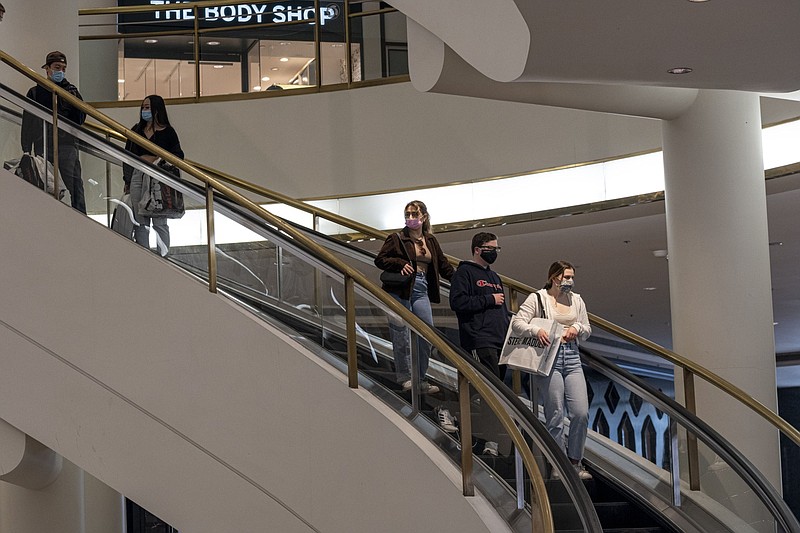U.S. consumer sentiment deteriorated unexpectedly in early May as Americans grew increasingly concerned about rising prices.
The University of Michigan's preliminary sentiment index fell to a three-month low of 82.8 early this month from 88.3 in April, data released Friday showed. The figure was well below even the most pessimistic estimate in a Bloomberg survey of economists.
Consumers said they expect a 4.6% increase in inflation over the next year, the highest reading a decade, while 43% of the survey's respondents said prices could rise by at least 5%. As a result, more consumers expected inflation to outpace income growth, representing a risk to the spending that makes up two-thirds of the economy.
"Consumer spending will still advance despite higher prices due to pent-up demand and record saving balances," Richard Curtin, director of the survey, said in the report.
Still, "this combination of persistent demand in the face of rising prices creates the potential for an inflationary psychology" that includes stepping up purchases before further gains in prices or asking employers for higher wages, Curtin said.
Consumers said they were concerned broadly about higher prices including on things like gas, homes and cars. A separate report on Friday showed retail sales stagnated in April after the second-biggest increase in records back to 1992. March sales jumped by an upwardly revised 10.7% as pandemic-relief checks provided millions of Americans with increased spending power.
While the consumer report reflected growing concerns about rising prices, in markets on Friday U.S. equities rose and Treasury yields fell slightly for a second-consecutive day as more-tempered commodity prices helped allay concerns about inflation risks.
Bloomberg's latest monthly survey also showed mounting inflation expectations among economists. Forecasters raised their projections for several measures of inflationary pressures -- the consumer price index, the personal consumption expenditures price index and the measure of that index excluding food and fuel -- for each quarter through March 2022.
Information for this article was contributed by Chris Middleton and Christopher Anstey of Bloomberg News (WPNS).

